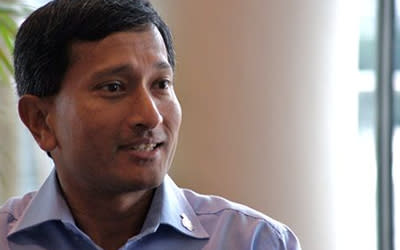Planning for a more ‘turbulent ride’

Like it or not, governments are going to have to get used to a more 'turbulent ride' when it comes to dealing with weather and climate change, said Minister for Environment and Water Resources Vivian Balakrishnan on Wednesday.
Climate change is a "stark reminder" that "so called one in a hundred year events now occur at time intervals considerably less than a hundred", said Dr Balakrishnan at the closing of the Water Leaders' Summit, according to a Channel NewsAsia report.
With these events now occurring at a considerably shorter interval, governments are going to have to plan for these unforeseen events caused by unpredictable weather, he said.
"The point is whether we like it or not, we are going to get used to a more turbulent ride, a less predictable world, and there is a need therefore for us to insure ourselves wherever possible, and wherever sensible against these events," he was quoted as saying.
This means, governments will have to factor in costs such as insurance, infrastructure and technology.
Said Dr Balakrishnan, "At some point, the cost is going to be paid either upfront in better preparation or timing, or worst, when the consequences of these unpleasant singular events occur."
Other than security and resilience, the Minister also talked about rational decision-making by politicians and the integration of resources to ensure that pricing is right for water.
Singapore has made some "hardball decisions" over the past decade, he said. "The advantage of having a well organised system without cross subsidies and with rational decision-making is that we've been able to make sure that the energy and water equation in Singapore continues to be coordinated and delivered in an integrated form."
Dr Balakrishnan also called on the private sector to drive research and development in water efficiency, citing an initiative by the PUB and Keppel Seghers to optimise a new desalination technology that could reduce the energy needed for seawater desalination by two-thirds.

